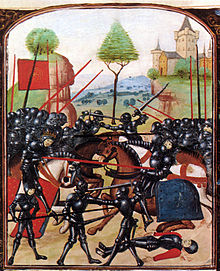 Espionage and Intelligence from the Wars of the Roses
Espionage and Intelligence from the Wars of the Roses
to the Reformation
Ian Arthurson
Nottingham Medieval Studies v.35 (1991)
Abstract
In the period between the Wars of the Roses and the Refonnation spies were used in foreign and military-affairs and for reasons of domestic security.* Contrary to expectations spies are not difficult to locate or document. They were a feature of classical and ancient civilisations; and the Middle Ages, which drew inspiration from the classical world, followed its example. Classical histories, the study of which was part of a prince’s education, contain examples of espionage. The works of Jean de Bueil (d. 1477) and Robert de Balsac ( 1502), present in the Royal library, prescribed the use of spies. Christine de Pisan, synthesiser of contemporary military practice and the Vegetian canon, was translated into Enghsh and published in 1492 on the orders of Henry VII. The literature of the period suggests that spies were an everyday part of military life. Blind Hary’s Wallace, written in 1478. describes two spies being sent out at midnight to reconnoitre a castle.
[smartads]
The chronicles of the period deal with espionage in a matter of fact way, presenting it with little or no comment, except where there was a contemporary controversy. Polydore Vergil spent several paragraphs dismissing the notion that ‘as some people think’ Sir Robert Clifford and Sir Robert Curzon were spies of Henry VII. Letters of the period also evidence the work of spies. Royal accounts state openly that rewards were given for spying or in the circumnambulation of the time state that such and such an individual was ‘about the king’s business’.
Click here to read this article from Nottingham Medieval Studies
